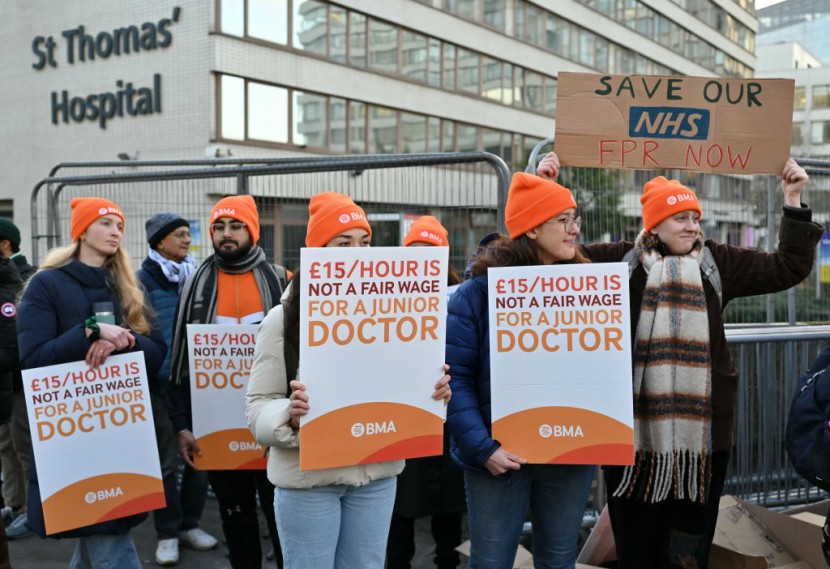A six-day walkout by thousands of doctors in the United Kingdom began on Wednesday, January 3, and it is expected to be the longest in the history of the National Health Service (NHS).
Authorities in England and Wales have announced that junior doctors, who are in the early stages of their careers, would be going on strike, canceling tens of thousands of appointments and surgeries. Clinics and hospitals rely on them, who will not be on the clock until January 9 at 7:00 AM local time, as reported by Euro News.
Maternity services, critical care, and emergency services have required the call-in of senior physicians and other medical professionals because of this.

Increased Strain Within Sector
The strike occurred just after the Christmas and New Year period when the health service was already facing high demands and pressures due to the holiday season as well as the spread of the flu and COVID-19.
As a result, patients will experience a substantial impact, warned Julian Hartley, chief executive of the healthcare managers' organization NHS Providers.
The British Medical Association (BMA) has been representing junior doctors in a series of walkouts over the last year, as has happened in other crucial industries, in order to seek greater compensation to combat the rising cost of living.
Due to the health service's already heavy workload, which it is still trying to recoup from the backlogs caused by the COVID-19 outbreak, the walkouts have made matters worse.
See Also : Kaiser Permanente Reaches Tentative Deal With Unions, Ending Largest US Healthcare Strike
Salary Negotiations
Since the beginning of the strikes in 2023, the NHS, which has offered free healthcare at the point of use since its creation in 1948, has canceled a total of 1.2 million appointments.
Though the government has negotiated wage agreements with senior physicians, ambulance crews, and nurses, talks remain deadlocked due to BMA's refusal to budge. Besides, the government has fought against increases that it claims will worsen inflation.
In a report by Reuters, the BMA went on strike from December 20 to 23 last year after giving up on wage negotiations with the government in response to an offer of an 8-10% increase. The union is requesting a 35% increase, which it claims is necessary to offset the effects of inflation over a number of years.
The government has made it clear that it will not negotiate until doctors end their strike, and the union has similarly said that it will not negotiate unless it gets a "credible" wage offer.
Dr. Vivek Trivedi, who is co-chair of the Junior Doctors Committee of the British Medical Association, said that the idea that they are just interested in organizing strikes is not their goal. "What we want is to negotiate an offer we can put to our members and for our members to accept it."
© 2025 HNGN, All rights reserved. Do not reproduce without permission.








